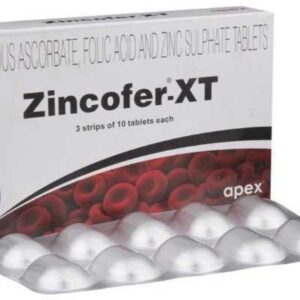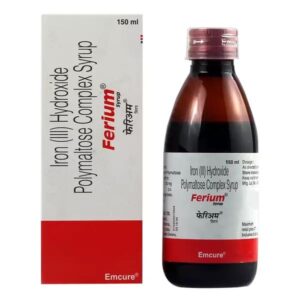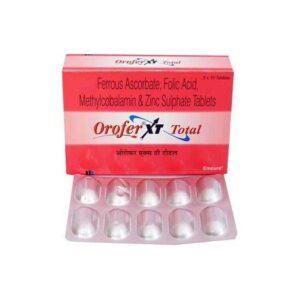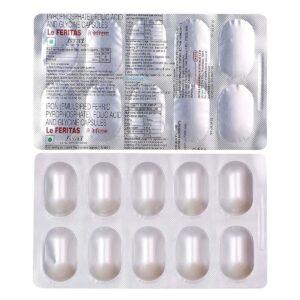FOLIC ACID + IRON
Folic Acid: Folic Acid is a synthetic form of folate, a B-vitamin. It is used as a dietary supplement to prevent or treat folate deficiency, which can cause anemia and other health issues. Folic Acid is also commonly prescribed to pregnant women to reduce the risk of certain birth defects.
The mechanism of action of Folic Acid involves its conversion to a coenzyme called tetrahydrofolate. This coenzyme is necessary for the synthesis of DNA, RNA, and proteins. By providing the body with an adequate supply of folate, Folic Acid helps support proper cell division and replication, which is important for growth and development.
The recommended daily dose of Folic Acid varies depending on age, gender, and specific medical conditions. For most adults, the recommended dose is 400 micrograms (mcg) per day. Pregnant women may require a higher dose of 600-800 mcg per day. It is usually taken orally as a tablet or capsule.
Folic Acid is generally considered safe and well-tolerated. However, like any medication, it can cause side effects in some individuals. Common side effects may include nausea, abdominal cramps, diarrhea, and rash. In rare cases, high doses of Folic Acid may mask the symptoms of vitamin B12 deficiency, which can lead to nerve damage if left untreated.
It’s important to consult with a healthcare professional before starting Folic Acid supplementation, especially if you have any underlying health conditions or are taking other medications. They can provide personalized guidance on the appropriate dose and monitor for any potential interactions or side effects.
Iron: Iron is a mineral that is essential for the production of red blood cells and proper oxygen transportation in the body. It is commonly used as a supplement to treat and prevent iron deficiency anemia, a condition characterized by low levels of iron in the body.
The mechanism of action of iron involves its incorporation into hemoglobin, the protein responsible for carrying oxygen in the red blood cells. Iron binds to the heme component of hemoglobin, enabling it to bind to oxygen and transport it to tissues throughout the body.
The dose of iron varies depending on the severity of the iron deficiency and the individual’s age and weight. Typically, the recommended dose for adults is 150-200 mg per day, divided into several smaller doses. Children may require lower doses, usually around 2-6 mg per kilogram of body weight per day.
While iron is generally safe and well-tolerated, it can have several side effects. The most common side effect is gastrointestinal discomfort, including stomach pain, constipation, and nausea. Some individuals may also experience diarrhea or dark-colored stools. In rare cases, iron can cause more severe side effects such as allergic reactions, including rash, itching, and swelling. It is important to consult a doctor before starting iron supplementation to ensure it is suitable for the individual’s specific needs and to monitor for any potential adverse effects.









